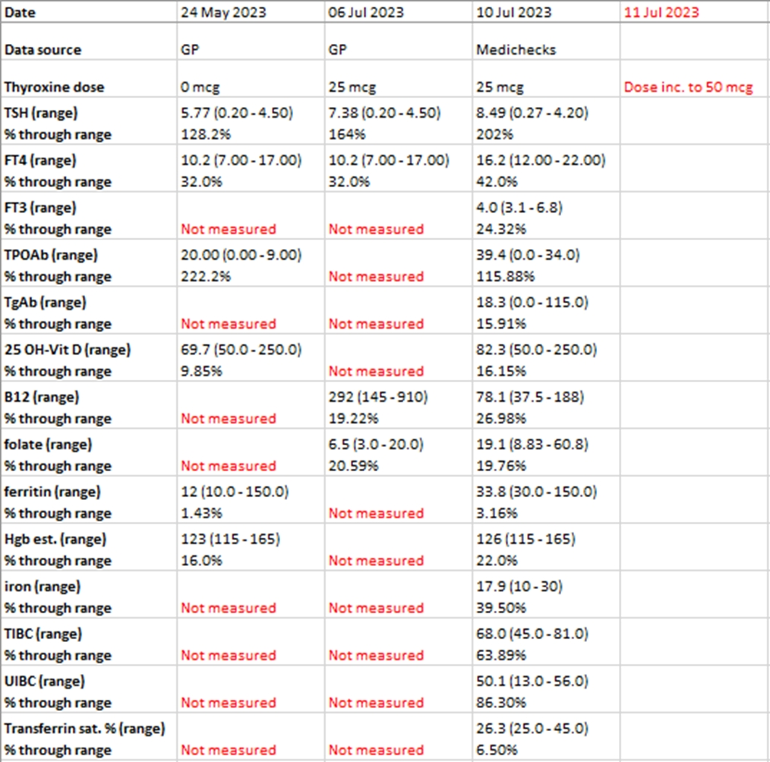Hello wise people!
I have a question that is more out of curiosity than concern. I am aware that the TSH level is a somewhat minor piece of information in the process of finding suitable dosing to treat AITD, and I also know that the measured values can be quite variable from test to test.
All that being said, I'm curious about the mechanism behind my gradual drift upwards in TSH values since starting to take 25 mcg of thyroxine. Does anyone know the potential reason behind my TSH blood results posted - shown in my *new* "thyroid spreadsheet" (I LOVE a good spreadsheet!)? My GP obviously panicked when she saw the TSH increase when the lab, weirdly, looked at my TSH and T4 levels - they were only supposed to be doing B12 and folate levels (only 4.5 weeks after starting thyroxine) and texted me immediately instructing an increase to 50 mcg.
In case the spreadsheet screen grab is too tiny to see easily, the relevant numbers are:
24 May 2023: GP test (not yet taking thyroxine, 11:00am, only water before)
TSH = 5.77 (0.20 - 4.50), 128.2%
FT4 = 10.2 (7.0 - 17.0), 32%
FT3 = not measured
06 July 2023: GP test (25 mcg thyroxine, last does >24 hours before, 9:35am, only water before)
TSH = 7.38 (0.20 - 4.50), 164%
FT4 = 10.2 (7.0 - 17.0), 32%
FT3 = not measured
10 July 2023: Medichecks (25 mcg thyroxine, last does >24 hours before, 9:30am, only water before)
TSH = 8.49 (0.27 - 4.20) 202%
FT4 = 16.2 (12.0 - 22.0), 42%
FT3 = 4.0 (3.1 - 6.8), 24.32%
Not worried at all - just puzzled/curious as I'm getting bogged down in the weeds of the data. Thank you!
[EDIT: Goodness... sorry - I didn't realise the pic would be that huge!]
